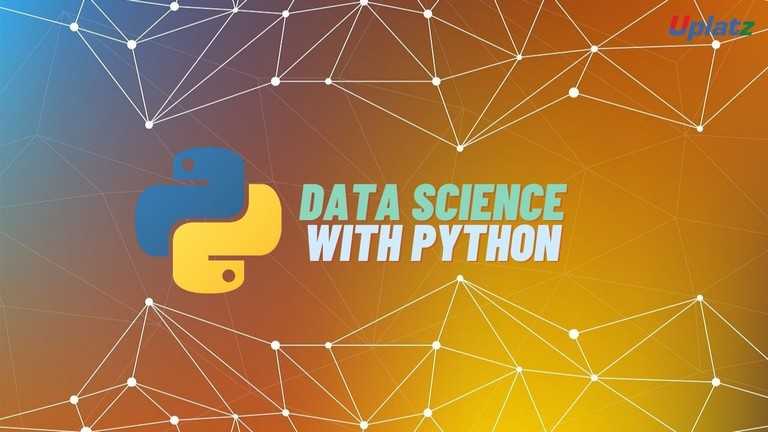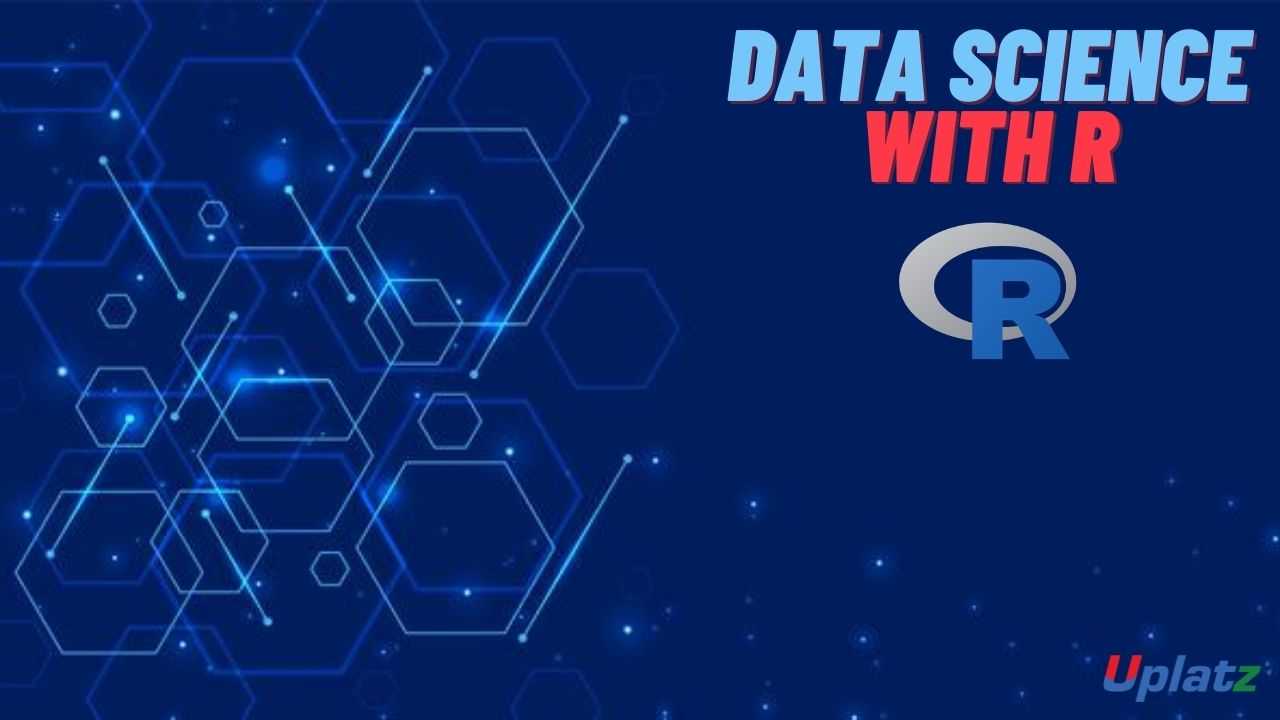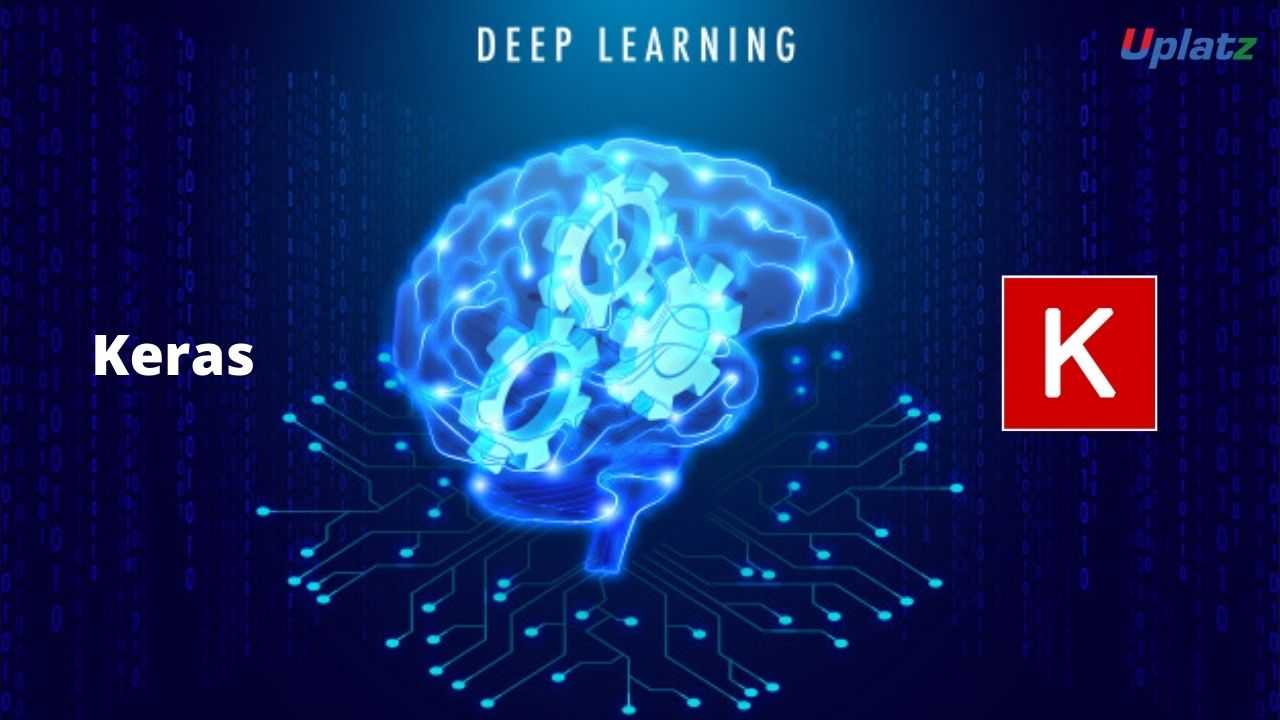Data Governance
Master data governance strategies, frameworks, roles, compliance, and tools to ensure high-quality, secure, and compliant enterprise data.Preview Data Governance course
Price Match Guarantee Full Lifetime Access Access on any Device Technical Support Secure Checkout Course Completion Certificate 92% Started a new career
BUY THIS COURSE (
92% Started a new career
BUY THIS COURSE (GBP 12 GBP 29 )-
 86% Got a pay increase and promotion
86% Got a pay increase and promotion
Students also bought -
-

- Data Science with Python
- 45 Hours
- GBP 12
- 2931 Learners
-

- Data Science with R
- 25 Hours
- GBP 12
- 479 Learners
-

- Deep Learning with Keras
- 15 Hours
- GBP 12
- 732 Learners

Data Governance – Practical Strategies for Modern Organizations (Self-Paced Online Course)
In a data-centric world where privacy regulations, data breaches, and compliance mandates are growing by the day, Data Governance is no longer a “nice-to-have” — it’s a mission-critical function that underpins organizational trust, transparency, and decision-making. This self-paced online course, Data Governance: Practical Strategies for Modern Organizations, is a comprehensive learning program that guides you through the full lifecycle of designing, implementing, and maintaining data governance practices in a real-world setting.
Designed with working professionals in mind, this course delivers high-quality video lessons, practical frameworks, and scenario-based guidance that empowers you to become a confident leader in the domain of data governance. Whether you’re a data steward, IT manager, business analyst, compliance officer, or aspiring data leader, this training will help you understand both the strategic vision and hands-on execution required to drive a successful data governance program.
Why This Course Matters
As organizations accumulate vast volumes of data across disparate systems and sources, managing that data responsibly and effectively has become a top priority. From ensuring data accuracy and consistency to meeting compliance requirements such as GDPR, HIPAA, or CCPA, businesses today cannot afford to treat data governance as an afterthought. Poor governance leads to poor data quality, regulatory risks, inefficiencies, and ultimately, loss of credibility and revenue.
This course provides you with the end-to-end skillset needed to prevent such pitfalls. You’ll not only understand what data governance is and why it matters, but also learn how to:
- Establish a governance framework that aligns with business objectives
- Define policies, standards, roles, and responsibilities
- Identify data ownership and stewardship hierarchies
- Create a culture of data accountability across teams
- Leverage modern governance tools and platforms
- Ensure compliance with global and industry-specific regulations
- Monitor data quality and enforce governance policies continuously
By the end of the course, you’ll be equipped to create a tailored data governance strategy that balances risk, compliance, data usability, and organizational agility.
Who This Course Is For
This course is crafted for professionals and decision-makers who work with data or are involved in managing data-centric projects:
- Data Governance Specialists and Officers who want to sharpen their frameworks and policy execution
- Data Analysts and Scientists seeking to understand governance principles to enhance data quality and usability
- IT Managers and Data Architects looking to implement control mechanisms and define metadata standards
- Compliance Officers ensuring alignment with data protection regulations and audit readiness
- Project Managers and Business Leaders who need to oversee data-driven initiatives with confidence
- Aspiring Data Professionals who aim to enter the field with a foundational and applied understanding of governance
No prior experience in data governance is required. If you have a basic understanding of enterprise data systems and organizational workflows, you’ll find this course highly approachable and immediately applicable.
How to Use This Course Effectively
One of the standout benefits of this training is its self-paced delivery model, which allows you to learn when and how it suits your schedule. To get the most out of the course, consider these tips and strategies:
1. Start With a Clear Purpose
Before you dive into the content, think about your objectives. Are you preparing to launch a governance initiative? Seeking to pass a certification exam? Leading compliance efforts at your organization? Knowing your “why” will help you stay focused and tailor your learning path accordingly.
2. Follow the Lessons in Sequence
The course is structured in a logical, step-by-step manner—starting with foundational concepts and gradually building toward advanced practices and real-world applications. It’s important to complete the modules in order so you can grasp the interdependencies between governance principles, tools, and implementation steps.
3. Apply Concepts to Your Work Environment
This course is rich in frameworks, models, and policies that are immediately relevant to workplace scenarios. As you progress through the material, pause to reflect on how the ideas apply to your current or future role. Ask yourself questions like:
- Who owns data in my organization?
- Do we have a clear data stewardship model?
- What policies or guidelines are currently missing?
Jot down your thoughts and use them to build a tailored governance roadmap.
4. Engage in Active Note-Taking
Treat this course as a professional development investment. Create a dedicated digital or physical notebook where you capture key takeaways, tool suggestions, and action items for your governance strategy. Over time, this notebook will evolve into your personal playbook for data governance execution.
5. Use the Case Studies and Examples as Templates
Many lessons include practical case studies or scenario walkthroughs. These aren’t just for illustration—they’re also a blueprint for your own projects. Use them as reference points to structure your governance approach, define stakeholders, or evaluate potential software solutions.
6. Complete the Activities and Reflect
Where provided, engage with quizzes, self-checks, or downloadable worksheets. These are designed to reinforce learning and prompt critical thinking. Reflect on what you’ve learned after each module and consider how it aligns with your organization’s maturity level in data governance.
7. Experiment with Free Tools or Demos
Although the course doesn’t require you to use any specific software, it does reference popular governance platforms and technologies. Where possible, download free trials or explore demo environments of these tools to gain practical exposure. This will deepen your understanding of how technology supports governance objectives.
8. Revisit Modules for Reinforcement
Because the course is self-paced, you’re encouraged to revisit complex modules or repeat topics you find challenging. Mastery comes through repetition, especially in a domain as nuanced as data governance.
9. Build a Governance Charter or Starter Kit
By the time you complete the course, you should be in a position to draft a simple governance charter, data policy document, or role matrix. This “starter kit” will not only help consolidate your learning but also give you a tangible output to bring into your workplace or showcase in interviews.
10. Earn and Leverage Your Certificate
After finishing the course, you’ll receive a Course Completion Certificate. Use this credential to boost your LinkedIn profile, resume, or internal promotion dossier. It’s a credible sign of your commitment to mastering one of the most in-demand skillsets in the data domain.
Final Thoughts
In an era where data is the new currency, governing it wisely is non-negotiable. This course doesn’t just teach you what data governance is—it shows you how to design it, lead it, and embed it into your organization’s DNA. Through strategic insights and actionable practices, you’ll develop a mindset that balances data value creation with privacy, control, and accountability.
Whether you’re looking to advance in your current role, transition into a governance function, or lead enterprise data initiatives, this course is your roadmap to becoming a trusted authority in data governance. Start today and build the foundation for a career that’s aligned with the future of digital responsibility.
Course/Topic 1 - Course access through Google Drive
-
Google Drive
-
Google Drive
By the end of this course, learners will be able to:
- Understand the fundamental concepts, importance, and benefits of data governance.
- Explore industry-standard frameworks like DAMA-DMBOK, CMMI, and IBM’s DG framework.
- Define and establish data governance roles, responsibilities, and organizational structures.
- Design and implement data governance policies, standards, and procedures.
- Evaluate and utilize modern governance tools such as data catalogs, lineage, and compliance platforms.
- Address key regulations and ensure organizational data privacy and security.
- Monitor and measure data governance effectiveness using KPIs and metrics.
Module 1: Introduction to Data Governance
- Definition and purpose of data governance
- Key components and stakeholders involved
- Understanding the need for data governance
- Benefits and challenges
Module 2: Data Governance Frameworks
- Overview of leading frameworks (DAMA-DMBOK, CMMI, IBM)
- Core components: policies, standards, and processes
- Tools and technologies supporting governance
Module 3: Organizational Structures and Roles
- Establishing DG structures
- Defining roles and responsibilities:
- Data Stewards
- Data Owners
- Data Users
- Data Quality Analyst
- Compliance Officer
- Data Architect
- Business Users
- Management Team
- Data Governance Council
Module 4: Developing a Data Governance Plan
- Essential components of a governance plan
- Integration of stewardship and ownership
- Creating role-based accountability
Module 5: Compliance and Privacy in Data Governance
- Overview of key regulations (GDPR, HIPAA, etc.)
- Implementing privacy and compliance measures
- Ensuring data security
Module 6: Tools & Technologies in Data Governance
- Data cataloging solutions
- Data quality and lineage tools
- Master Data Management (MDM)
- Governance platforms (Collibra, Talend, Informatica)
- Security and privacy tools
- Workflow and collaboration systems
Module 7: Implementation of DG Policies
- Establishing effective procedures
- Aligning policies with business objectives
- Using Metrics & KPIs to measure success
Module 8: Trends and Innovations in Data Governance
- Automation in governance
- AI-enabled governance systems
- Future directions in data stewardship
Upon successful completion of the Data Governance course, learners will be awarded a Course Completion Certificate from Uplatz, demonstrating their understanding and practical skills in enterprise data governance strategies and tools.
This certificate validates your ability to implement governance initiatives, define policies, and manage compliance across enterprise systems. It serves as a valuable credential for roles such as Data Governance Analyst, Compliance Manager, Data Steward, and Chief Data Officer.
This course also acts as a preparatory path for industry-recognized certifications such as:
- CDMP (Certified Data Management Professional) from DAMA International
- DGSP (Data Governance & Stewardship Professional)
- Other vendor-specific certifications in governance tools (Collibra, Informatica, IBM, etc.)
Completing this course opens up diverse roles in the data management and compliance space, such as:
- Data Governance Analyst
- Data Steward / Data Owner
- Chief Data Officer (CDO)
- Compliance Manager
- Data Quality Specialist
- Enterprise Data Architect
Industries like banking, healthcare, government, retail, and manufacturing actively hire professionals with strong data governance skills to ensure data integrity, regulatory compliance, and organizational efficiency.
1. What is data governance and why is it important in modern enterprises?
Data governance refers to the framework of policies, processes, roles, and standards that ensure the effective management, quality, integrity, and security of data across an organization. It is important in modern enterprises because it ensures that data is accurate, accessible, consistent, and protected. With increasing reliance on data-driven decision-making and compliance requirements like GDPR and HIPAA, data governance helps mitigate risks, improve operational efficiency, support analytics, and ensure regulatory compliance.
2. How do DAMA-DMBOK and IBM’s frameworks differ in structure and implementation?
The DAMA-DMBOK (Data Management Body of Knowledge) is a vendor-neutral framework that outlines core data management principles, including 11 knowledge areas such as data governance, data quality, and data security. It serves as a comprehensive guide for establishing data governance practices.
In contrast, IBM’s Data Governance Framework is more tool-centric and focuses on implementation through IBM’s suite of data governance tools. It provides structured workflows, integration mechanisms, and automation capabilities for operationalizing governance in enterprise environments. DAMA offers conceptual guidance, while IBM’s framework is more implementation-oriented and tailored to its ecosystem.
3. What are the main responsibilities of a Data Steward vs. a Data Owner?
A Data Steward is responsible for ensuring the quality, integrity, and consistency of data. They manage day-to-day data issues, perform data profiling, and ensure compliance with policies. They serve as custodians of data within their domain.
A Data Owner, on the other hand, holds decision-making authority over specific datasets. They define data access policies, approve data sharing, and are accountable for data compliance and protection. While stewards manage data quality, owners define and enforce the rules.
4. How would you design a data governance policy for a multinational company?
Designing a data governance policy for a multinational company involves:
· Understanding global compliance needs such as GDPR, CCPA, and local regulations.
· Defining roles and responsibilities across regions and business units.
· Establishing a central governance council with local data stewards and owners.
· Creating standardized data definitions and classifications to support consistency.
· Implementing scalable tools for data cataloging, quality monitoring, and access control.
· Developing escalation procedures for data issues and non-compliance.
· Continuous training and communication across the organization to promote a data-driven culture.
5. What compliance regulations must a data governance plan address?
A robust data governance plan must address several regulations depending on the industry and geography. Key ones include:
· GDPR (General Data Protection Regulation) – for personal data protection in the EU.
· HIPAA (Health Insurance Portability and Accountability Act) – for health data in the U.S.
· CCPA (California Consumer Privacy Act) – for consumer data rights.
· SOX (Sarbanes-Oxley Act) – for financial reporting accuracy.
· PCI-DSS (Payment Card Industry Data Security Standard) – for credit card data security.
It must also align with industry standards such as ISO/IEC 27001 for information security.
6. Describe tools used for data lineage and data quality.
· Data Lineage Tools: These track the lifecycle of data as it moves through systems. Tools like Informatica Enterprise Data Catalog, Collibra, and Apache Atlas visualize data flow, transformations, and dependencies.
· Data Quality Tools: These tools assess and cleanse data by identifying inaccuracies, duplicates, or missing values. Popular ones include Talend Data Quality, IBM InfoSphere QualityStage, and SAP Information Steward. They support data profiling, rule enforcement, and automated corrections.
7. How does a Data Governance Council function within an organization?
A Data Governance Council serves as the governing body responsible for setting the strategic direction of data governance initiatives. It is typically composed of senior executives, data owners, compliance officers, and business stakeholders. The council defines policies, approves frameworks, resolves conflicts, allocates resources, and ensures alignment with business goals. It also provides oversight and monitors adherence to governance standards across the organization.
8. What metrics would you use to assess the effectiveness of data governance?
To evaluate data governance effectiveness, organizations can use metrics such as:
· Data Quality Scores: Accuracy, completeness, consistency, and timeliness of key datasets.
· Policy Compliance Rate: Percentage of users adhering to data policies and procedures.
· Issue Resolution Time: Average time taken to detect and resolve data quality issues.
· Data Stewardship Activity: Volume and efficiency of stewardship tasks completed.
· User Satisfaction: Feedback from business users regarding data usability and trust.
· Audit Findings: Frequency and severity of audit issues related to data governance.
· Access Control Violations: Number of unauthorized access attempts or breaches.









